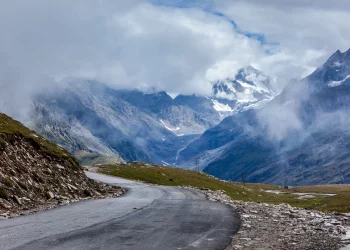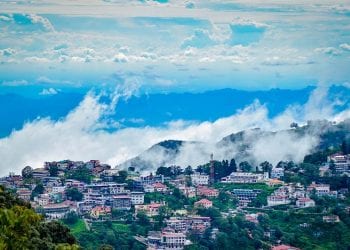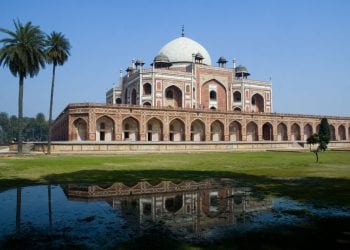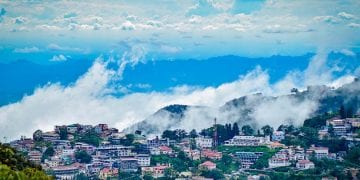A Complete Guide to the Nathdwara Temple
Rajasthan, which could be easily considered the royal state of India, boasts of many ancient and medieval temples, forts, and monuments. And among all the wonders, one temple that stands out is the Shrinathji Temple of Nathdwara.
The Nathdwara Temple is a Hindu Temple dedicated to one of the avatars of Lord Krishna, Shrinathji. Nestled on the banks of river Baman, it is located at a distance of 48km from the enchanting city of Udaipur. A symbol of Rajasthan’s holy and spiritual zeal, it is an important pilgrimage point of Rajasthan.
In this temple, the priests dress up the deity in a new dress every day. Devotees from all over the world come here to witness the different forms of idol. The story of this beautiful and majestic temple dates back to the time of Meera Bai. It holds a great significance in Hindu mythology and religion. The story behind the origin of the Shrinathji temple is quite interesting and is deep-rooted in both history and mythology. Its design is along the lines of the temple of Nanda Maharaj in Vrindavan. Therefore, it is also known as Nanda Bhavan or Nandalaya.
Diwali, Holi, and Janmashtmi are celebrated with a lot of enthusiasm here. During these festivals, people throng in large numbers making the place overcrowded. In addition to these festivals, Annakut is a significant festival that is celebrated here with full enthusiasm and fervour. According to some sources, Shrinathji temple is only open for Hindus except for foreigners. However, you should check with locals regarding this particular thing as information from different sources differs.
Nathdwara temple is located alongside the banks of river banas, 48 km from the lake city of Udaipur. This beautiful temple of Shrinathji is a famous centre of pilgrimage in Rajasthan. The Nathdwara temple is renowned for the shringar of Lord Krishna where the deity is adorned with new clothes each day. Devotes from all over the world come in large numbers to see the various forms of this God. This glorious temple dates back to the times of Meera Bai and holds an essential position in Hindu mythology. The story behind this temple is a mixture of legend and reality. Devotees in large numbers visit the temple during the festival of Janmashtami, Diwali and Holi that are all associated with Lord Krishna and his avatars. Furthermore, the temple is also known for its excellent feast that feeds hundreds of devotees each year.
The central deity of this temple is Shrinathji, who is 7- year old child avatar of Lord Krishna. The sculpture of the God is a monolith of black stone that depicts his iconic lifting of the Govardhan Mountain. It is said that this idol self-manifested around 12th century from the Govardhan Mountains. Legends state that Lord Krishna had lifted the mountain with his little finger to save his villagers from heavy rains. As per the legends, the Mughal emperor Aurangzeb had his evil eye on the idol. So, to keep it safe from his clutches, it was shifted from Vrindavan. While the shifting of the idol was taking place, the wheels of the cart carrying the idol sunk into deep mud at the very spot where now the temple stands. It was thus inferred that the Lord wanted to stay at this place. Hence, the Nathdwara temple was constructed in 1672 and remained under the protection of Maharana Raj Singh of Mewar.
Legend of Nathdwara Temple
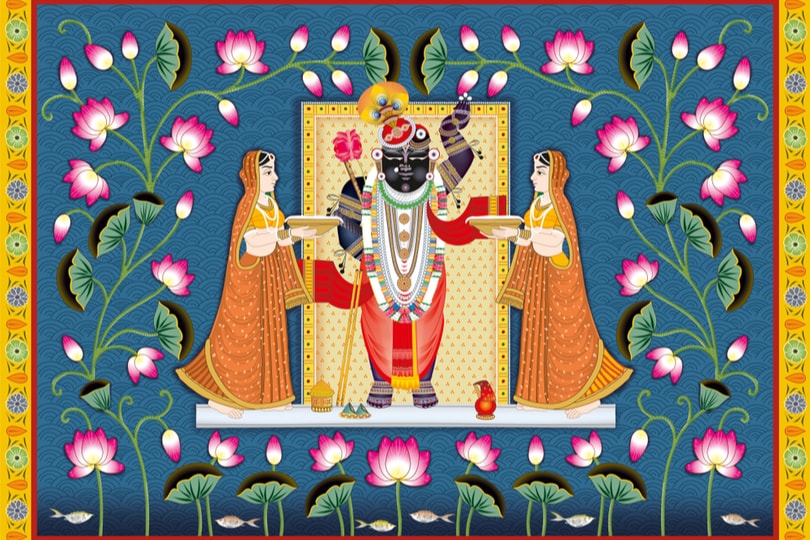
According to the scriptures of Pushtimarg -a sect of Vaishnavism- as a boy, Krishna used to visit Mewar to play chaupar with Princess Ajab Kunwari. But it left the princess sad whenever Lord Krishna had to leave for Vrindavan. So, the Lord promised his mate that he would reside at her place permanently when the right time came. Legend has it, the wheels getting stuck is the Lord’s way of keeping his promise.
Rituals of the Nathdwara Temple
The main deity of the temple is the child avatar of Lord Krishna. Hence, the priests and devotees provide him with care fit for a child. Along with daily offerings of puja, the idol is even bathed, fed, dressed up and provided with rest on a timely basis. The rituals of the deity take place under the supervision of the head priest, who is a direct descendant of Vallabhacharya. Since Lord Krishna always had an inclination towards cows, this beautiful temple houses around 500 cows. Of these 500 cows, one is regarded as Shrinath ji’s cow. It is believed that this cow comes from the pedigree that has served the lord for centuries. The milk from the cows is used for bathing and feeding the deity every day. Earlier, people used to send wagons filled with food to this temple, which were said to be consigned by and consigned to Shrinathji.
The Architecture of Nathdwara Temple
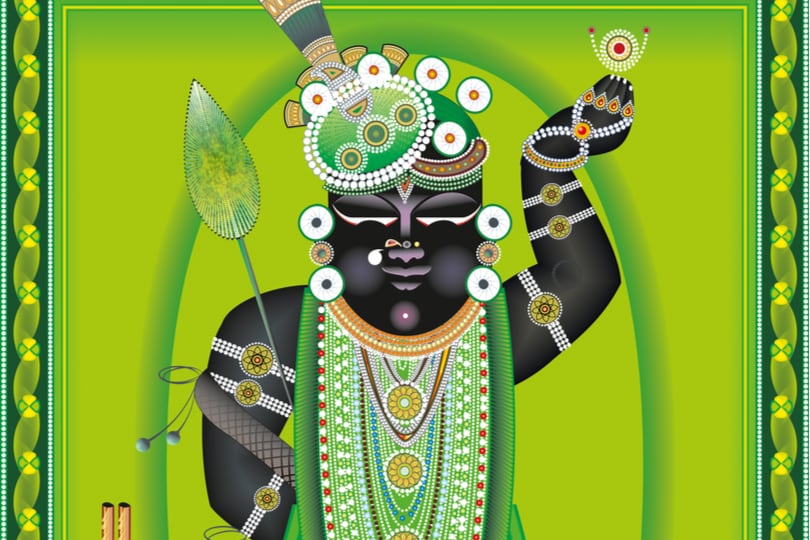
The architecture of this temple bears a resemblance to the Nanda Maharaja temple in Vrindavan, the seat of Lord Krishna’s father. Therefore, Nathdwara Temple is also known as Nandalaya or Nanda Bhavan. The Shikhar of the temple features seven flags that represent the seven houses of Pushtimarg Sampradaya. Local residents have named the place as “Shrinathji ki haveli”. The deity here is considered to be the head of a household rather than a god. Similar to any household the temple has different rooms that function as kitchens, storerooms, drawing rooms, treasuries, and a stable. The temple premises even have subsidiary temples of Madan Mohan and Navneet Priya alongside the main sanctum.
Darshan Timings of Nathdwara Temple
The temple’s daily rituals start with the mangal aarti at 5:15 AM and end with Shayan at 7:30 PM. On a regular basis, three aartis are part of the rituals- – “Mangala Arti”, “Sandhya Arti”, and the “Ratre Shayan Aarti”.
Annakut Festival Celebrated at the Nathdwara Temple
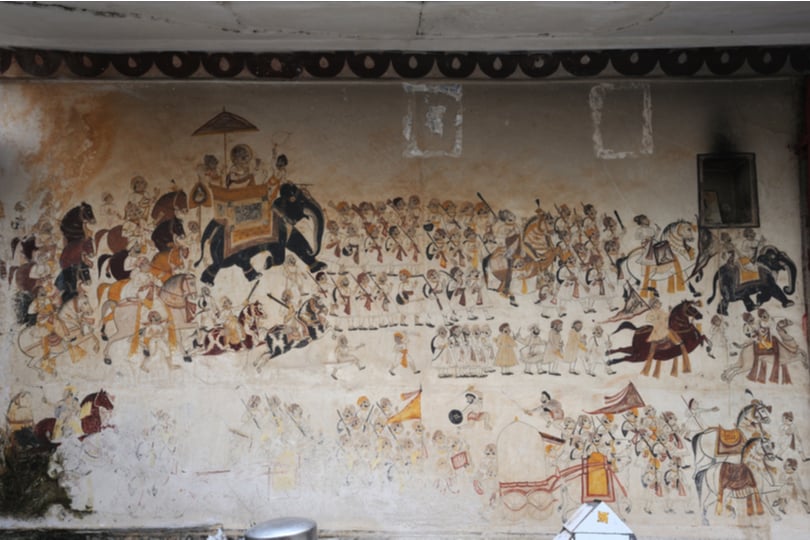
Annakut is linked to Govardhan Pooja. During this festival devotees prepare 56 or 108 dishes to offer to Lord Krishna. This offering is known as ‘bhog’.
According to the legend, Govardhan was a small hillock situated at Braj near Mathura. The residents of this village used to worship Lord Indra because they believed that he blessed them with rain. However, Krishna told them that it was not Indra but the Govardhan mountain that brought rains to their village. Therefore, they should worship the latter and not Indra. When the people followed his ordinance, Lord Indra let loose his wrath on the people in the form of heavy rains. It is believed that Lord Krishna saved the people by praying to the Govardhan Parvat and lifting it with his little finger to provide shelter to the distraught villagers.
On this day, devotees prepare delectable food items and make an offering to the deity. The bhog is usually in the form of a mountain symbolising the Govardhan Parvat. The idol of Lord Krishna at the Nathdwara Temple is dressed up and adorned with precious jewels. The day starts with bathing the deity in milk, and then wrapping it in expensive fabrics such as silk and chiffon. The garments are usually bright in color. Usually colors such as red, yellow, and saffron are preferred as they are considered auspicious by the Hindu community. The idol is then adorned with ornaments of gold and silver studded with diamonds and pearls.
Best Time to Visit Shrinathji Temple
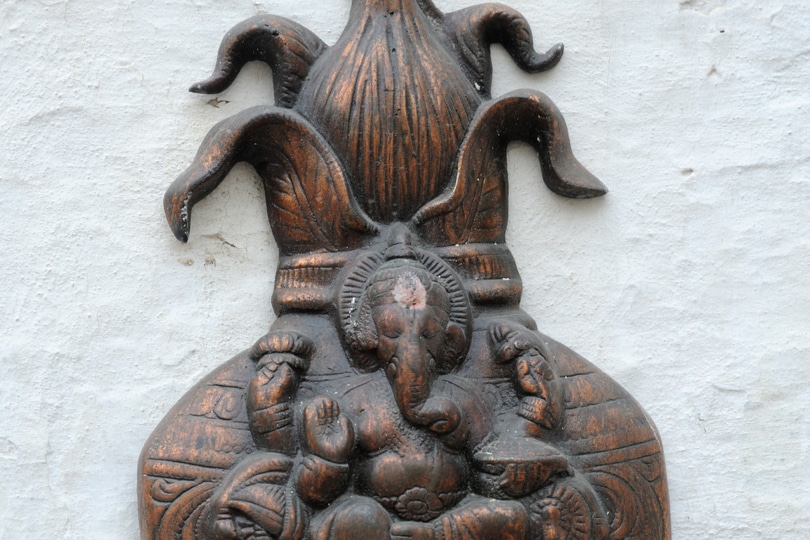
The Shrinathji Temple is open throughout the year but special festivities take place during Holi, Diwali, and Janmashtmi. The locals celebrate these festivals here with a lot of pomp and show. Another important festival is the Annakut festival. It usually takes place during October or November, immediately after Diwali. You can visit the temple during this festival but you will have to brave the crowds.
Aarti and Shringar are the main attractions of this temple. The deity is dressed up beautified seven times a day. It is a wonderful experience to see Lord Krishna in his most beautiful form ever. The prayers are offered with diyas, incense sticks, and flower and fruit offerings. Devotional songs dedicated to Shrinathji are played on musical instruments.
All of these factors make a visit to this temple a truly exhilarating experience. If you wish to get an authentic taste of Indian and Hindu culture, then you should definitely visit the Nathdwara Temple in Rajasthan. You will not witness such devotion, such colors, and such hope anywhere else.
Recent Posts
Top Picks

- OYO
 15 April, 2024
15 April, 2024 - Cultural Tour

- OYO
 15 April, 2024
15 April, 2024 - Cultural Tour

- OYO
 15 April, 2024
15 April, 2024 - Cultural Tour

- OYO
 15 April, 2024
15 April, 2024 - Cultural Tour

- OYO
 15 April, 2024
15 April, 2024 - Cultural Tour

Please rotate your device
Please go back to portrait mode for the best experience



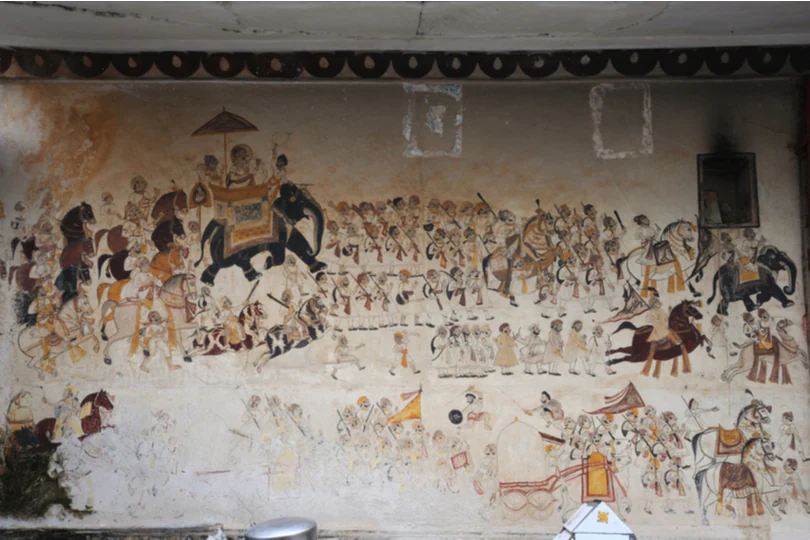

 April 15, 2024
April 15, 2024 